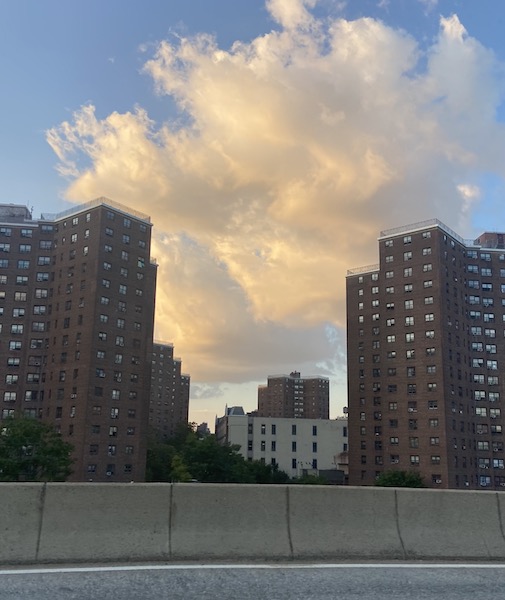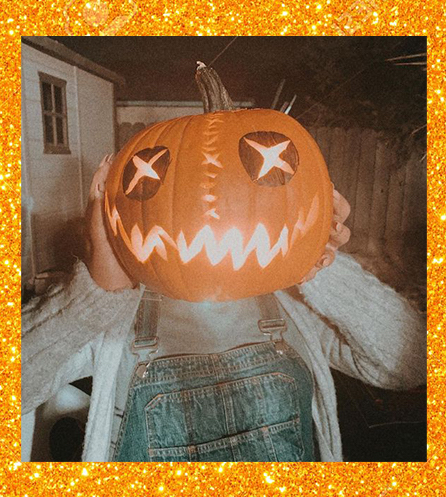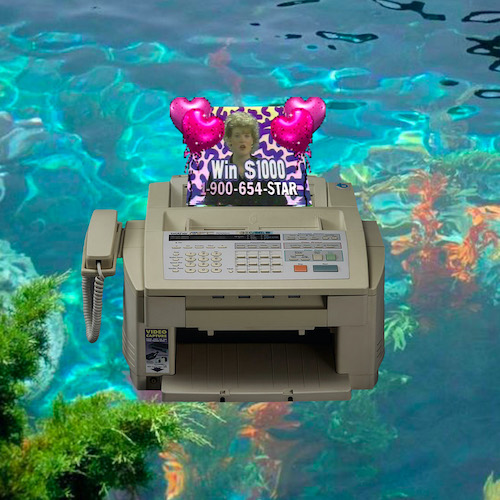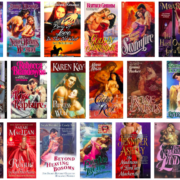
 💋 TRUE ROMANCE! A Chat With Author Rebecca Brooks
💋 TRUE ROMANCE! A Chat With Author Rebecca Brooks
Maria Bustillos, in her article “Romance Novels, The Last Great Bastion of Underground Writing,” described romance novels as “field guides for resolving the real-life difficulties women face.” It made total sense to me. Before Cosmopolitan, before confessional first-person essays, before New York Magazine’s Sex Diaries, before there were more novels featuring female protagonists, there were romance novels.
I met writer Rebecca Brooks at a book festival two years ago after gratefully stumbling upon a booth of romance novelists. Brooks went to Wellesley, graduated with a Ph.D. in English at the CUNY Graduate Center in 2012, and now lives in New York City with her husband writing contemporary romance novels. Her first book, Above All, was inspired by a tender acknowledgment to her husband in her dissertation, and she’s been prolific ever since. Her most recent series Men of Gold Mountain takes place in a sleepy Washington State ski town, with the last book in the series, Make Me Yours, published in October 2017. She also writes short stories for Hooked, an app where you can have romances and thrillers delivered in bite-sized text messages. (I have used it, and it feels like receiving a sext — a scintillating way to get through the workday!)
Our conversation started on the topic of writing romance in text-message form and went from there. You can learn more about Rebecca’s work here.
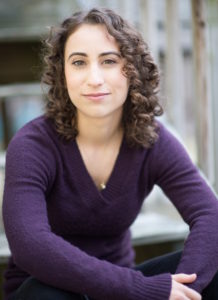 –
–
I was looking at the Hooked app, and it’s such an interesting concept. It got me thinking, how is it writing within the frame of social media and technology in general? Even if it’s not in the text-message format of Hooked, is it difficult to incorporate technology and social media into your writing, or does it come naturally from using it in your everyday life?
What got me excited about writing for Hooked was thinking about it like post-modern playwriting — which I’m not a postmodern playwright so maybe I’m totally butchering that — but you’re writing dialogue, and there’s some small stage direction, but it’s the dialogue between the characters fueling the whole story, which is much the way a play works. It’s a different medium to work with, and my hope is that it’s going to make my dialogue better overall.
In some of my novels, I have characters text each other a lot because that feels natural and organic and the way that we interact. You’re out on a date and you’re texting your best friend. I wrote a scene where the heroine has hooked up with this guy the night before not knowing he’s working in her office, and they’re on opposite sides of a project and her ex-boyfriend is there. She’s a huge mess and she pulls up into the parking lot and sees their cars, and of course, has that “Oh shit” moment and texts her best friend. And then there’s this whole funny exchange between them.
That got me thinking about how you think and write through those text messages. These things are how we communicate, so it makes a lot of sense to incorporate those forms of communication, especially texts that are about relationships, romantic relationships, relationships with friends, the way that the romance genre is about how we relate to each other.
I’ll back up and ask, how did you get into romance? How did you get into writing?
I’ve always wanted to be a writer — like, always. In some ways that was great because I’ve gone through my life having this really clear direction of “What am I going to do that’s going to set me up to be able to be a writer?” I didn’t have a specific sense of calling like, “I love mystery novels, and that’s what I want to write” or “I love romance novels and that’s what I want to write.”
I did a Ph.D. in English, and I thought I was going to go into academia and be a professor as a way to support myself as a writer. When I was in graduate school…I realized that I was putting all of my energy and all of my writing into my Plan B of being a professor, and that didn’t feel like it was going to work for me to also be writing fiction. So I wound up finishing my doctorate, but I didn’t go into academia. I wrote my dissertation on the romance plot in contemporary feminist utopian and dystopian novels — Ursula Le Guin just died and she was one of the authors that I wrote about — and a lot of the sort-of political women’s writing about imagining other worlds and other possibilities for women and for female characters. I was very interested in feminist writing and the politics of feminist literature, spaces for women writers and characters, and through this looking at the romance plot and courtship narratives, that’s how I got into thinking about romance novels.
I never grew up reading romance novels. My mom didn’t read romance novels; I’m sure that people were that I knew, but no one was really talking about it. I feel like a lot of other people, you know, they take their mom’s Harlequins or something, and that’s their introduction under the covers at age 12. I was a total literary snob about it, and then through my dissertation, I had that moment of, “I’m talking about romance so much, I should read a romance novel.” I started picking some of them up and had this “Holy shit” moment of [realizing] this genre is not what I thought it was, with all of my preconceived stereotypes about romance. And if I’m interested in all of these things about feminist literature and about female characters, romance is where this is happening. It’s so different from a lot of other things that I read.
I had always sort of dabbled — like maybe here’s a scene or here’s a character — and I had this idea for a romance novel, and my husband and I would always bat around, “What if this happened?” or “Here’s an idea for a book.” I thought about it for a while, and I finally was like, “So what about this for a novel?” and I laid out this whole plot idea from start to finish. That was the plot for my first romance novel Above All. That was the first sort of “Here’s a whole book idea” for a novel that I could write. Once I had one idea, I had a million others. I feel like I got into it accidentally, but I feel really lucky that I did.
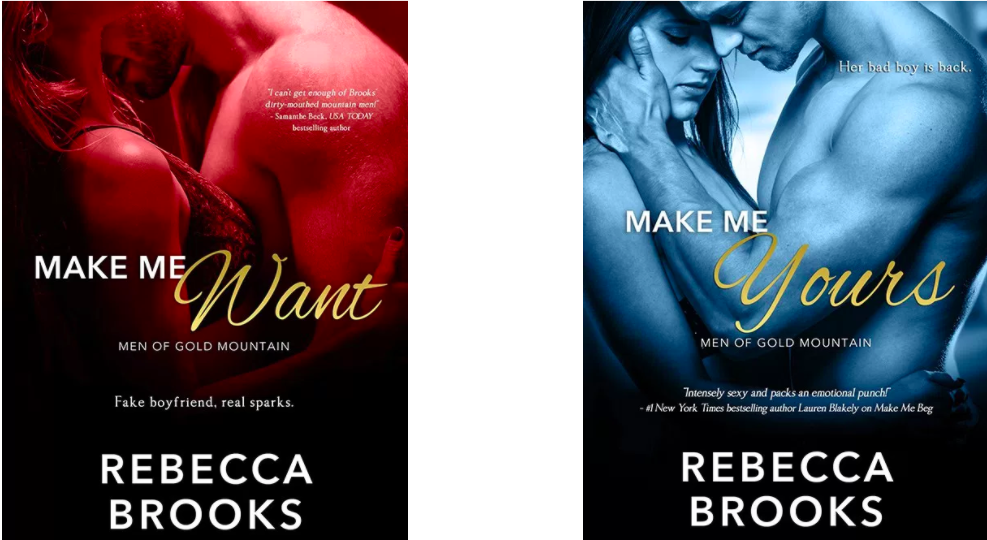
I saw this quote that I liked by Maria Bustillos that described romance novels as “field guides for resolving the real-life difficulties women face.” I feel like that sort of hits the nail on the head.
I guess that’s a lot of what drew me to my dissertation is like, what are the sort of real-world applications of these fantasy novels? Because it is a fantasy novel, not in terms of unicorns or magic spells, but imagining these relationships and thinking, how do you get out of these problems, or how do you work with these problems, or how do you trust that, even though things are difficult, they will be OK in the end?
And, sometimes, I think that’s hugely a problem because that can teach, well sure, you’re with this guy who is terrible and maybe is violent or angry or abusive, or just not giving you what you need and deserve in some way. But just work through it and you can change him. I think that’s the underside of that; that can be really problematic. It’s not all perfect. But I also think the idea that you work together with people to communicate and work through problems is certainly a good thing.
Where do the first seedlings and inspiration for your novels usually come from?
I have usually some kernel of a place or a situation, or just some small “What if that happened?” and then “If that happened, where would things go from there?” The first novel I was talking about, Above All, came out of the title. In the acknowledgments in my dissertation, I was thanking all of these people, and it’s really hard to come up with what to say that’s going to be emotional and sincere, but also not completely over the top and ridiculous.
At the bottom of it, I said, “Above all, thanks to my husband for chocolate” and, I don’t know whatever else, and I was worried about that being adequate to express what this person did to support me. When he read it, he was really touched. He was like, “Above all, am I your ‘above all’?” and that got me thinking about this character who was looking for her “above all,” the man who’s going to be hers above all. That’s a little thing where it’s like OK, someone is looking for their “above all”, what would come out of not just that particular search, but I started imagining her ex-boyfriend had written a book and he dedicates it to someone else, even though she was the support for most of it. It just spiraled from there.
I had studied abroad in Brazil in college, and after Above All, I started thinking that it’d be really fun to set a book there, and I imagined two people meeting in a hotel room late at night. It’s a little scenario, and then you start to ask, “Well, who are those people?” “Where do they come from?” “How did they wind up in that pool?” “What’s going to draw them to each other, and what’s going to pull them away?” I guess I usually think of the meet-cute. How do these people meet, and as a result of that, who are they and what are they doing now?”
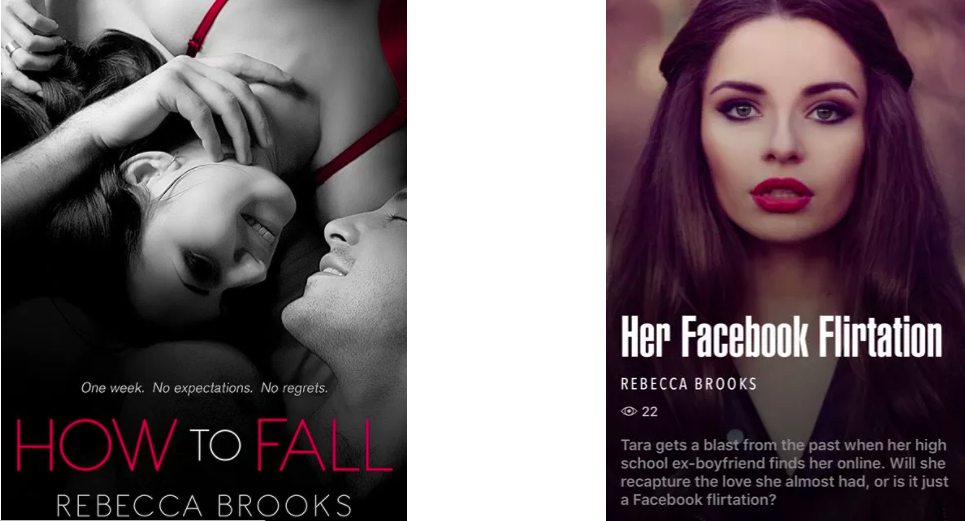
What is your audience like? Are there things that surprise you about your readers?
I think what surprised me about my readers — and just becoming more involved in this world and seeing what’s out there — especially because I didn’t come from a background where I was already really involved in the romance community of readers and writers, is just how enormous and incredibly diverse the readership is. I think a lot of people have this stereotyped image of who they think the average romance reader is, and it’s not usually a very flattering image. And I feel like that’s so completely not true. What I’ve loved about interacting with readers is how much people are in totally different parts of the country, and different ages, and different marital statuses, and have different books that they like to read. I probably should have a better sense of who my target reader is, but I don’t know because everyone that I meet seems to be so varied.
What kind of relationship do you think younger women today have with romance novels?
We have this image of an older, middle-aged woman sitting at home devouring these romance novels, but I think absolutely younger women are also really into it. Certainly, when I meet people, it’s really fun getting to say, “I write really dirty feminist romance novels,” and people’s eyes light up. I feel like I definitely get that from millennial women. I think there is an openness and eagerness, and an interest in talking about sex and sort of exploring that — especially from women’s perspectives and in a way that’s sex-positive, that’s not shaming.
I also don’t want to stereotype or have that be suggesting that women who are older don’t want to talk about sex because that is definitely not true either. I find that I am writing a lot about professional women who have careers they’re working on, and maybe before the love interest comes in the story, they are living their best lives without a partner, and I think that’s something a lot of millennial women also relate to. Yes, they want to be in a relationship, but that’s not the only thing. The books are not just about “You find a man and you get married, and your life is complete,” it’s about “Well, there’s this relationship and you’re working through that, but also what’s happening with this big thing at work?” and “What do I even want to do with my life?” and “How do I figure out what that is?” and “How can my growing partnership with this other person that I met help me figure that out across the board?
I think it’s interesting to think about where women are at as a sort of whole generalization, and the way that’s changed, and the way novels reflect that.
All images courtesy of rebeccabrooksromance.com.
Categorised in: Features, Love & Sex